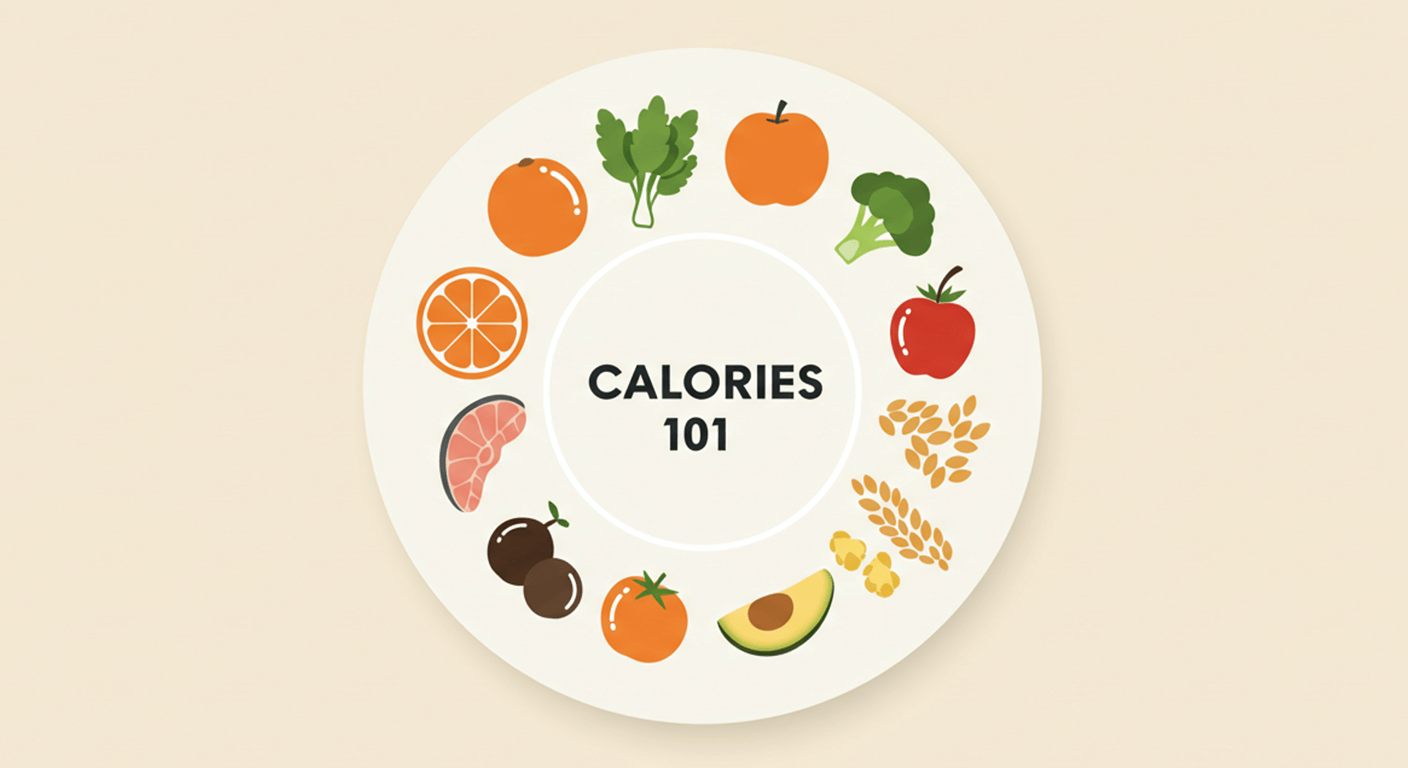
2025-01-06
If you're on a journey toward achieving your fitness goals, understanding calories is crucial. Whether you're trying to lose weight, gain muscle, or maintain your current weight, calories play a central role.
What Are Calories?
Calories are units of energy that our bodies use to perform every function—from breathing and walking to exercising and digesting food. The food and drinks you consume provide calories, which fuel your body.
Macronutrients and Their Caloric Values
The three main macronutrients provide energy in the form of calories:
- Protein: 4 calories per gram
- Carbohydrates: 4 calories per gram
- Fat: 9 calories per gram
Micronutrients (like vitamins and minerals) support overall health but do not provide calories directly.
How Calories Impact Weight
Your body's weight is influenced by the balance of calories consumed versus calories burned. This concept is often referred to as "calories in vs. calories out."
Caloric Surplus, Deficit, and Balance
- Caloric Surplus: Consuming more calories than your body burns leads to weight gain.
- Caloric Deficit: Consuming fewer calories than your body needs leads to weight loss.
- Caloric Balance: Consuming the same number of calories as you burn maintains your weight.
Why Tracking Calories Matters
Awareness
Logging meals with tools like calorie.gg's Food Calorie List provides clarity on portion sizes and nutritional value.
Accountability
Tracking keeps you consistent with daily calorie limits or protein goals.
Adjustments
Identify trends and make data-driven adjustments to your diet and exercise routine.
Holistic Health
Use calorie.gg's Meal Planner and Hydration Calculator to meet overall health needs.
How to Calculate Your Calorie Needs
Your daily calorie requirements depend on:
- Basal Metabolic Rate (BMR): Calories needed at rest for basic functions.
- Activity Level: Calories burned through physical activity.
- Fitness Goals: Weight loss, muscle gain, or maintenance.
Use calorie.gg's Calorie Calculator to determine your ideal calorie intake.
Common Calorie Myths
Myth 1: Skipping meals helps with weight loss.
Truth: Skipping meals can lead to overeating later and slow metabolism.
Myth 2: All calories are the same.
Truth: Nutrient quality matters. 300 calories of lean protein and vegetables fuel your body differently than 300 calories of sugary snacks.
Calorie Tracking and Sustainable Habits
Tracking calories is not about restriction—it's about creating sustainable habits. Here's how:
- Set Realistic Goals: Use the Weight Tracker to monitor progress.
- Enjoy Flexible Eating: Fit occasional treats into your day without derailing progress.
- Focus on Progress, Not Perfection: Consistency over time is key.
Key Takeaways
- ✓ Calories are units of energy that fuel your body.
- ✓ Weight is influenced by "calories in vs. calories out."
- ✓ Tracking calories helps with awareness, accountability, and adjustments.
- ✓ Use calorie.gg's tools to simplify calorie management.
Ready to take control of your health and nutrition? Start using calorie.gg's tools today and empower yourself with the knowledge you need to succeed.
